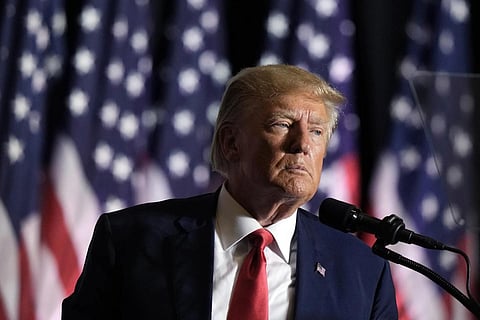

WASHINGTON: The Michigan Supreme Court on Wednesday rejected a bid to remove Donald Trump from the crucial swing state's primary ballot next year over his role in the 2021 storming of the US Capitol.
Opponents of the Republican former president wanted judges to force election officials to determine whether Trump's efforts to overturn his defeat in 2020 and the riot in Washington should make him ineligible to run again.
But the high court said in a brief ruling it was "not persuaded that the questions presented should be reviewed by this court" ahead of Michigan's February 27 presidential primary.
It was the latest in a series of bids to block Trump from appearing on primary ballots in multiple states under the 14th Amendment, which says officials who take an oath to support the US Constitution are banned from future office if they "engaged in insurrection."
The decision contrasts with the recent ruling from the Colorado Supreme Court, which kicked Trump off the state's primary ballot over his role in the Capitol riot, which he is accused of inciting.
The Michigan lawsuit was filed in September by Free Speech For People, a pro-democracy advocacy group that also pursued an unsuccessful 14th Amendment challenge against Trump in Minnesota and has filed a case in Oregon.
Michigan's lower courts dismissed the case on procedural grounds early in the process, a decision upheld on appeal, meaning the question of whether Trump engaged in insurrection was never addressed.
Justice Elizabeth Welch, one of four Democratic-nominated justices on the seven-member panel, acknowledged the Colorado decision but said that state's election law differed from Michigan's "in a material way" in requiring candidates to be "qualified" to run.
"The appellants have identified no analogous provision in the Michigan Election Law that requires someone seeking the office of President of the United States to attest to their legal qualification to hold the office," Welch wrote.